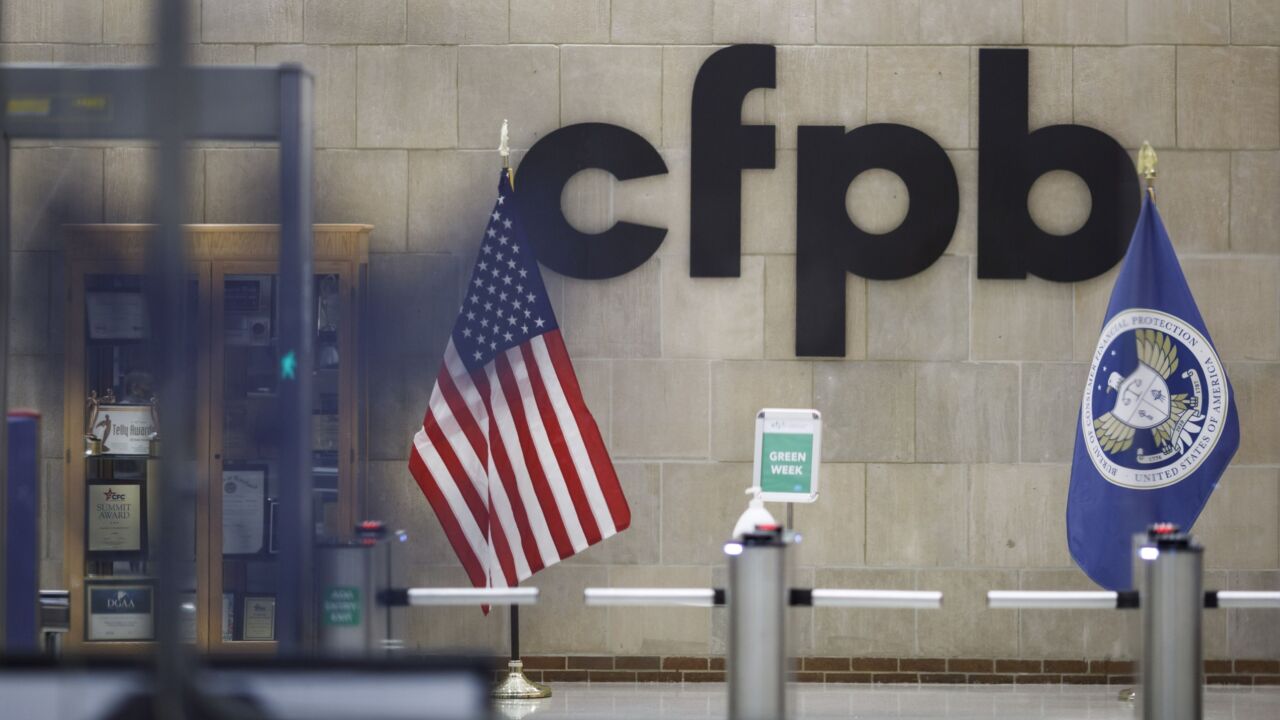WASHINGTON — When Donald Trump took control of the White House and Republicans swept into power in Congress this year, most expected that the Financial Stability Oversight Council's role would be radically reshaped.
Instead, more than a year later, the FSOC’s role has gradually evolved. As the Trump administration finally gets its regulators into place, who will also serve on the interagency council created by the Dodd-Frank Act, changes are expected to accelerate.
One area that the FSOC has already signaled change is rethinking the council’s Obama-era designations of nonbanks as systemically important financial institutions.
“They’ve pretty clearly shut the door on designating anybody,” said Marcus Stanley, policy director of Americans for Financial Reform. "The crisis showed the need for some federal consolidated backstop, and I think they’re going to drop that.”

He noted that a
As the council enters 2018, it is widely expected to drop its appeal of a ruling over its SIFI designation of MetLife. The insurance giant was designated in December 2014 but the company successfully sued to have that label rescinded. The case was being
David Portilla, partner at Debevoise & Plimpton and former senior policy adviser for the FSOC, said that the fact that the litigation has been outstanding for almost a year after the Trump administration took over the leadership of the FSOC suggests that it remains unfinished business that the council will look to resolve sooner rather than later.
“The government — not just the FSOC necessarily, but the government — will want to figure out how to resolve the MetLife litigation … in 2018,” Portilla said.
Alex Pollock, a senior fellow at the R Street Institute, agreed a resolution will be a top priority in the coming year. The council will soon have a majority of Trump appointees as voting members, and if that was the reason why it had not withdrawn the appeal to date, there will soon be no impediments to withdrawing, he said.
“I don’t know why they’ve delayed,” Pollock said. “It may be that they want to formally pass it through the FSOC. That has to be on the agenda, and that would be a good New Year’s resolution.”
The resolution of the MetLife case would also have the effect of leaving only the insurance firm Prudential as a designated nonbank SIFI. The FSOC had at one time designated four nonbanks as SIFIs — Prudential, American International Group, MetLife and GE Capital. But GE Capital was de-designated in April 2015 after effectively jettisoning much of their financial business, and AIG was de-designated by FSOC in September.
Unlike those other firms, however, Prudential has done little to restructure its business in order to make the case to the interagency council that it should be de-designated. Nonetheless, the company
“Each firm is different, but certainly based on their actions so far they’re going to take a hard look at whether the designation should be maintained,” Portilla said. “Certainly the FSOC is going to review them and figure out whether the standard continues to be met, and will view that standard in light of the current composition of the council.”
Pollock said that, in addition to de-designating the remaining insurance firms as SIFIs, the council should also consider assigning SIFI designations to two new firms: Fannie Mae and Freddie Mac. The government is already providing an explicit backstop to the two firms after seizing them and putting them in conservatorship nearly a decade ago. That should make it clear they constitute a systemic risk, according to Pollock.
“It’s amazing, because it’s so obvious that they are,” Pollock said. "That’s my recommendation to them: They should take it up forthwith, and it’s a really easy decision.”
The idea of having FSOC designate Fannie and Freddie is not new — Pollock even
And Federal Reserve Gov. Jerome Powell — who has been tapped to chair the central bank after Janet Yellen retires in February —
Stanley said the idea is not likely to get momentum in the medium term, if for no other reason than because pursuing SIFI designation of the government-sponsored enterprises would require an expenditure of political capital that the administration would probably rather use elsewhere. If Randal Quarles, the Fed's vice chairman for supervision, has a more elaborate plan for how GSE designation would work, then it could gain traction, Stanley said, but barring that there will probably be no more nonbank SIFIs come 2019.
“The X factor is if Quarles is focused on this and has an idea of what Fed oversight of GSEs ought to be,” Stanley said. “But that would significantly upset the apple cart of various Washington power arrangements, and I don’t see that going from talking point to reality.”
A more subtle development that is likely to be set in motion in 2018 is the absorption of the Office of Financial Research into the Treasury Department. The OFR is a quasi-independent arm of the Treasury that was created by Dodd-Frank to provide the oversight council with independent research aimed specifically at identifying sources of systemic risk.
OFR Director Richard Berner, who has headed the agency
Pollock said that the OFR has always been looked on somewhat jealously by the Treasury. In the process of drafting of Dodd-Frank, various ideas were considered on what form the agency should take, ranging from a completely independent organization to an arm of Treasury to an arm of the Department of Commerce.
Ultimately policymakers decided on the quasi-independent status that the OFR has today, but if the agency is folded into Treasury it would be
“If you wanted OFR to be actually an objective, intellectual operation calling them as they see them, it’s hard to do that from inside the treasury Department,” Pollock said. “You can debate whether you want such an independent agency; I actually think it’s a good idea.”
Stanley agreed, saying that it seems like the financial research office — or at least the independent version of the agency that has prevailed to date — is changing, and probably not for the better.
“One thing we see is that people seem to have knives out for OFR, and it doesn’t seem to be getting protected,” Stanley said. “Without the OFR, there isn’t really the capacity to have an independent voice looking across the financial landscape.”





